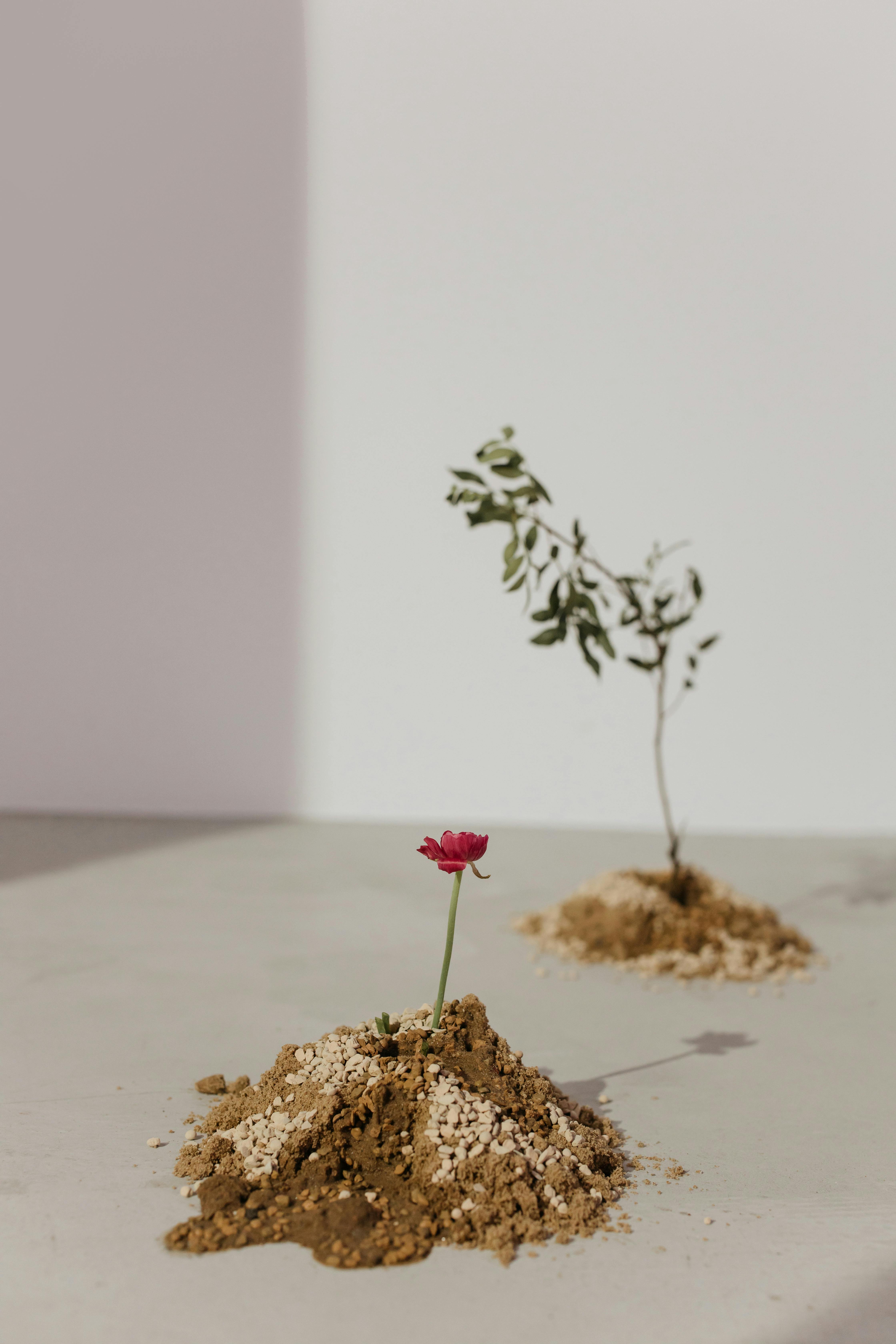Are you wondering why your puppy always seems to be tired? In this article, we will uncover some of the common reasons behind puppy laziness. From the demands of their growing bodies to lack of exercise and certain health conditions, there are various factors that can contribute to your furry friend's fatigue. By understanding the potential causes, you can better address your puppy's needs and ensure they have the energy to enjoy their playful moments.
Lack of Sleep
Not enough sleep during the night
Lack of sleep is a common reason why your puppy may constantly appear tired. Just like humans, puppies require an adequate amount of sleep to support their growth and overall well-being. If your puppy is not getting enough sleep during the night, they may be more likely to be tired and lethargic during the day. It is important to establish a consistent bedtime routine for your puppy to ensure they are getting enough rest.
Disruptions in sleep patterns
Disruptions in your puppy's sleep patterns can also contribute to their constant tiredness. Factors such as noise, lights, or uncomfortable sleeping arrangements can disrupt your puppy's sleep and leave them feeling exhausted. It is important to create a calm and quiet sleeping environment for your puppy to help promote a good night's sleep.
Sleep disorders
In some cases, your puppy's constant tiredness may be due to a sleep disorder. Just like humans, puppies can experience sleep disorders such as sleep apnea or restless leg syndrome. If you suspect that your puppy may be suffering from a sleep disorder, it is important to consult with a veterinarian who can provide a proper diagnosis and treatment plan.
Energy Expenditure
Physical exertion
Physical exertion plays a vital role in your puppy's energy levels. Regular exercise is essential for maintaining your puppy's physical and mental well-being. If your puppy is not getting enough exercise, they may not be expending enough energy, leading to a constant state of tiredness.
Mental stimulation
In addition to physical exercise, mental stimulation is also important for your puppy's energy levels. Mental activities such as puzzle toys, training sessions, and interactive play can help keep your puppy's mind engaged and prevent them from becoming overly tired.
Overexertion
While it is important to provide your puppy with regular exercise, it is equally important to avoid overexertion. Puppies have a lot of energy, but they also need adequate rest and recovery time. If your puppy is constantly engaged in high-intensity activities without enough rest, they may become exhausted and display signs of constant tiredness.

This image is property of images.pexels.com.
Nutritional Imbalance
Lack of essential nutrients
Proper nutrition is essential for your puppy's overall health and energy levels. If your puppy is not receiving a balanced diet that includes essential nutrients, they may experience a lack of energy. Ensure that your puppy is receiving a high-quality puppy food that meets their nutritional needs to help combat constant tiredness.
Inefficient diet
Along with receiving essential nutrients, the efficiency of your puppy's diet can also impact their energy levels. Feeding your puppy at regular intervals throughout the day and providing them with adequate portion sizes can help maintain a consistent energy level and prevent them from feeling constantly tired.
Food allergies or sensitivities
If your puppy has a food allergy or sensitivity, it can affect their digestion and overall energy levels. Some puppies may experience fatigue and tiredness as a result of an allergic reaction to certain ingredients in their food. If you suspect that your puppy may have a food allergy or sensitivity, consult with a veterinarian to determine the appropriate dietary changes to address this issue.
Underlying Health Issues
Infections or illnesses
Underlying infections or illnesses can greatly impact your puppy's energy levels. Conditions such as parasites, bacterial infections, or viral infections can cause fatigue and constant tiredness. It is important to monitor your puppy for any signs of illness and seek veterinary care if you suspect they may be unwell.
Chronic pain or discomfort
Similar to humans, chronic pain or discomfort can cause your puppy to feel tired and lethargic. Conditions such as joint problems, dental issues, or gastrointestinal discomfort can affect your puppy's energy levels. If you suspect that your puppy is experiencing chronic pain or discomfort, consult with a veterinarian to address and manage these conditions.
Hormonal imbalances
Hormonal imbalances can also contribute to your puppy's constant tiredness. Conditions such as hypothyroidism or Cushing's disease can cause fatigue and lethargy in puppies. If you suspect that your puppy may have a hormonal imbalance, consult with a veterinarian who can perform appropriate tests and provide necessary treatment.

This image is property of images.pexels.com.
Stress and Anxiety
Separation anxiety
Puppies may experience separation anxiety when separated from their owners or familiar environments. This can lead to constant tiredness as anxiety can be emotionally and physically draining for your puppy. Providing your puppy with appropriate training and gradually acclimating them to being alone can help reduce separation anxiety and improve their energy levels.
New environment or changes
A new environment or changes in your puppy's surroundings can also contribute to their constant tiredness. Puppies are sensitive to their surroundings, and sudden changes can cause stress and anxiety, leading to fatigue. Providing a calm and stable environment for your puppy and gradually introducing any changes can help reduce their tiredness.
Fear or phobias
Fear or phobias can also cause your puppy to constantly feel tired. The emotional and physiological response to fear can be exhausting for puppies. Identifying and addressing the underlying fears or phobias through positive reinforcement training or professional guidance can help alleviate your puppy's constant tiredness.
Age and Growth
Puppy development stages
Puppies go through various developmental stages, and each stage may affect their energy levels differently. Some stages, such as the rapid growth period, may require more energy and result in exhaustion. Understanding the different developmental stages of your puppy and providing appropriate care and rest during each stage can help manage their tiredness.
Growth spurts
During growth spurts, puppies may experience a sudden increase in energy demands. This can lead to constant tiredness as their bodies adjust to their growing needs. Ensuring that your puppy is receiving a balanced diet and allowing for additional rest during growth spurts can help manage their tiredness.
Teething
Teething can also cause your puppy to feel constantly tired. The discomfort associated with teething can disrupt your puppy's sleep and leave them feeling fatigued during the day. Providing appropriate teething toys, offering soothing measures, and ensuring they have comfortable sleeping arrangements can help alleviate their tiredness.

This image is property of images.pexels.com.
Breed Characteristics
Naturally low energy levels
Certain dog breeds may naturally have lower energy levels compared to others. Breeds such as Bulldogs or Basset Hounds are known for their calmer demeanor and may appear tired more often. Understanding your puppy's breed characteristics can help manage your expectations regarding their energy levels and prevent unnecessary worry.
Prone to certain health conditions
Some dog breeds are more prone to certain health conditions that can contribute to constant tiredness. For example, brachycephalic breeds (such as Pugs or French Bulldogs) may experience respiratory difficulties that can lead to fatigue. Familiarize yourself with any breed-specific health concerns and ensure appropriate veterinary care to manage your puppy's tiredness.
Breed-specific sleep patterns
Different dog breeds may have varying sleep patterns and requirements. Some breeds may need more sleep compared to others, and this can result in them appearing constantly tired. Research your puppy's breed to understand their specific sleep patterns and provide them with appropriate rest to avoid excessive tiredness.
Overstimulation
Excessive play or socialization
While play and socialization are important for your puppy's development, excessive amounts can lead to overstimulation and constant tiredness. Puppies may struggle to regulate their energy levels, and if they are constantly engaged in high-energy activities, they may become exhausted. Providing structured playtime and allowing for appropriate rest periods can help manage your puppy's tiredness.
Sensory overload
Sensory overload can occur when your puppy is exposed to excessive stimuli such as loud noises, bright lights, or crowded environments. This can leave your puppy feeling drained and constantly tired. Ensuring a calm and quiet environment for your puppy and avoiding overwhelming sensory situations can help prevent exhaustion.
Lack of downtime
Just like humans, puppies also need downtime to rest and recharge. If your puppy is constantly engaged in activities or lacks sufficient rest periods, they may become overtired and appear constantly tired. Providing a comfortable and quiet area for your puppy to relax and enforcing regular nap times can help manage their tiredness.
Excessive Heat or Cold
Temperature regulation difficulties
Puppies may struggle to regulate their body temperature, especially in extreme heat or cold. If your puppy is exposed to excessive heat or cold without adequate shelter or proper temperature regulation, they may become exhausted. It is important to protect your puppy from extreme temperatures and provide them with appropriate shelter and comfort to prevent constant tiredness.
Weather-related factors
Weather conditions such as high humidity or low temperatures can also impact your puppy's energy levels. Hot and humid weather can make it more challenging for your puppy to cool down, while cold temperatures can cause them to expend more energy to stay warm. Adjusting your puppy's exercise and outdoor time according to the weather conditions can help manage their tiredness.
Inadequate shelter
Inadequate shelter can leave your puppy exposed to the elements, resulting in fatigue and constant tiredness. Ensure that your puppy has a comfortable and protected area to rest and seek shelter from extreme weather conditions. Providing a cozy bed or crate indoors can also offer a safe and warm resting place for your puppy.
Behavioral Issues
Boredom or lack of stimulation
Boredom and lack of mental stimulation can lead to constant tiredness in puppies. If your puppy does not have enough activities or enrichment opportunities to keep them engaged, they may become lethargic and tired. Providing a variety of toys, puzzles, and interactive games can help alleviate boredom and prevent constant tiredness.
Attention-seeking behavior
Puppies may display attention-seeking behavior when they are craving interaction or stimulation. If your puppy constantly seeks attention and does not receive appropriate engagement, they may become tired due to the emotional and physical effort of seeking attention. Ensuring regular playtime and quality bonding moments with your puppy can help manage their tiredness.
Learned laziness
In some cases, puppies may exhibit learned laziness, especially if they are consistently rewarded for calm behavior. While it is important to reinforce positive behaviors, excessive rewards for inactivity can lead to constant tiredness. Balance rewards with appropriate exercise and mental stimulation to encourage a healthy level of activity in your puppy.
Understanding the various reasons behind your puppy's constant tiredness can help you identify and address any underlying issues. By providing appropriate sleep, nutrition, exercise, and mental stimulation, you can help ensure that your puppy maintains optimal energy levels and enjoys a healthy and active lifestyle. Remember, if you have any concerns about your puppy's constant tiredness or overall well-being, it is always advisable to consult with a veterinarian for proper guidance and care.


